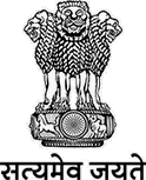About | Planning Department (PD) , RAJASTHAN Check here latest notification
Planning Department: Steering Rajasthan's Development Journey
Introduction
In the heart of India's vibrant state of Rajasthan lies the Directorate of Planning Department, a pivotal entity shaping the state's socio-economic landscape. With a rich history and a forward-looking vision, this department plays a crucial role in the strategic planning and implementation of development projects. This blog delves into the structure, functions, and impact of the Planning Department, highlighting its significance in Rajasthan's growth story.
Historical Background
The Planning Department of Rajasthan has evolved over the years, aligning itself with the changing dynamics of governance and development. Initially established to streamline resource allocation and policy formulation, it has transformed into a comprehensive body that not only plans but also monitors and evaluates the execution of various programs and schemes.
Structure and Organization
The Directorate of Planning Department operates under the guidance of the Planning Secretary, who is supported by a team of dedicated professionals. This includes officers specializing in economics, statistics, public administration, and other relevant fields. The department is organized into several divisions, each focusing on specific aspects of planning and development:
1. Economic Division: This division is responsible for macroeconomic planning, including budgetary allocations and financial forecasting. It ensures that the state's economic policies are in sync with national and global trends.
2. Project Monitoring and Evaluation Division: Tasked with overseeing the implementation of development projects, this division ensures that projects are executed efficiently and within stipulated timelines.
3. Statistical Division: This division collects and analyzes data on various socio-economic indicators, providing valuable insights that inform policy decisions.
4. Urban and Rural Planning Division: Focusing on balanced regional development, this division formulates plans for urban and rural areas, addressing issues like infrastructure, housing, and sustainable development.
Key Functions
The Planning Department's core functions revolve around comprehensive planning, effective resource allocation, and robust monitoring mechanisms:
1. Policy Formulation: The department formulates policies aimed at sustainable development, considering the unique socio-economic conditions of Rajasthan.
2. Plan Preparation: It prepares annual and five-year plans, outlining the state's development priorities and strategies.
3. Resource Allocation: The department ensures optimal utilization of resources by allocating funds to various sectors based on priority and need.
4. Monitoring and Evaluation: Through regular monitoring and evaluation, the department ensures that development projects are on track and deliver the intended benefits to the population.
5. Data Management: By maintaining comprehensive statistical records, the department supports evidence-based policy-making and planning.
Major Initiatives and Achievements
Over the years, the Planning Department has spearheaded several significant initiatives:
1. Smart City Projects: Fostering urban development through smart city initiatives that focus on modern infrastructure, sustainable practices, and enhanced quality of life.
2. Rural Development Schemes: Implementing various schemes to improve rural infrastructure, agriculture, and livelihood opportunities.
3. Economic Reforms: Introducing reforms to boost industrial growth, attract investments, and enhance the state's economic competitiveness.
4. Social Sector Investments: Prioritizing investments in health, education, and social welfare to improve human development indicators.
Challenges and Future Outlook
Despite its commendable efforts, the Planning Department faces several challenges, including:
1. Resource Constraints: Balancing limited resources with the vast development needs of the state.
2. Regional Disparities: Addressing the developmental disparities between urban and rural areas.
3. Sustainability: Ensuring that development projects are environmentally sustainable and socially inclusive.
Looking ahead, the Planning Department aims to leverage technology and data analytics to enhance its planning and monitoring capabilities. It is also focused on fostering greater public participation in the planning process, ensuring that development is truly inclusive and reflective of the people's aspirations.
Conclusion
The Directorate of Planning Department of Rajasthan stands as a beacon of strategic development and efficient governance. Its tireless efforts in planning, resource allocation, and project monitoring have significantly contributed to the state's progress. As Rajasthan continues to evolve, the Planning Department will undoubtedly play a pivotal role in steering its development journey, ensuring that the state remains on a path of sustainable and inclusive growth.

